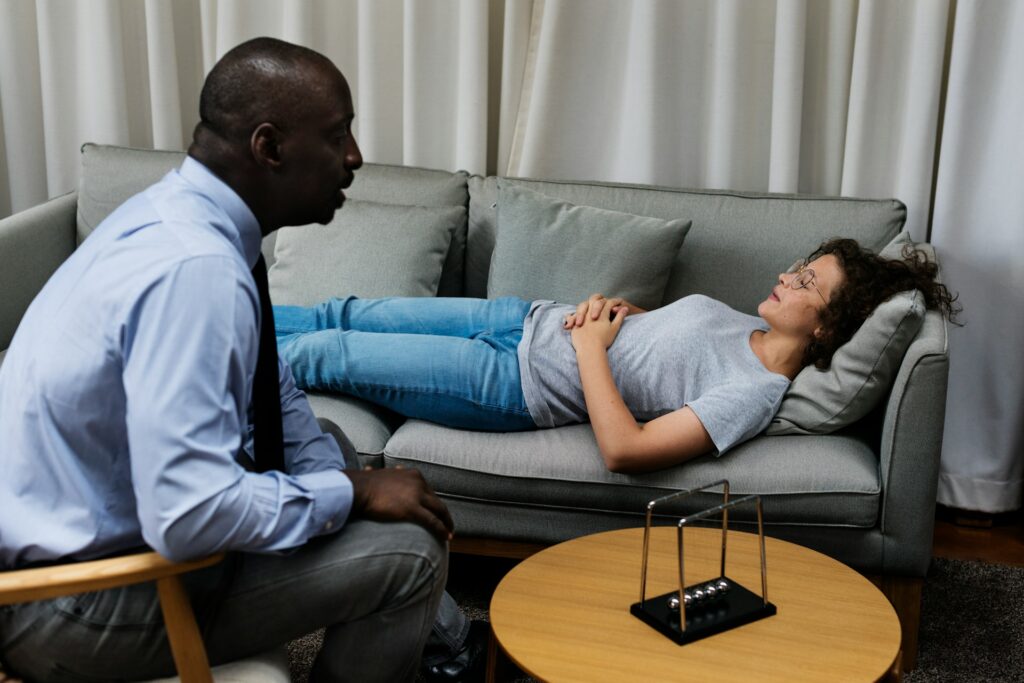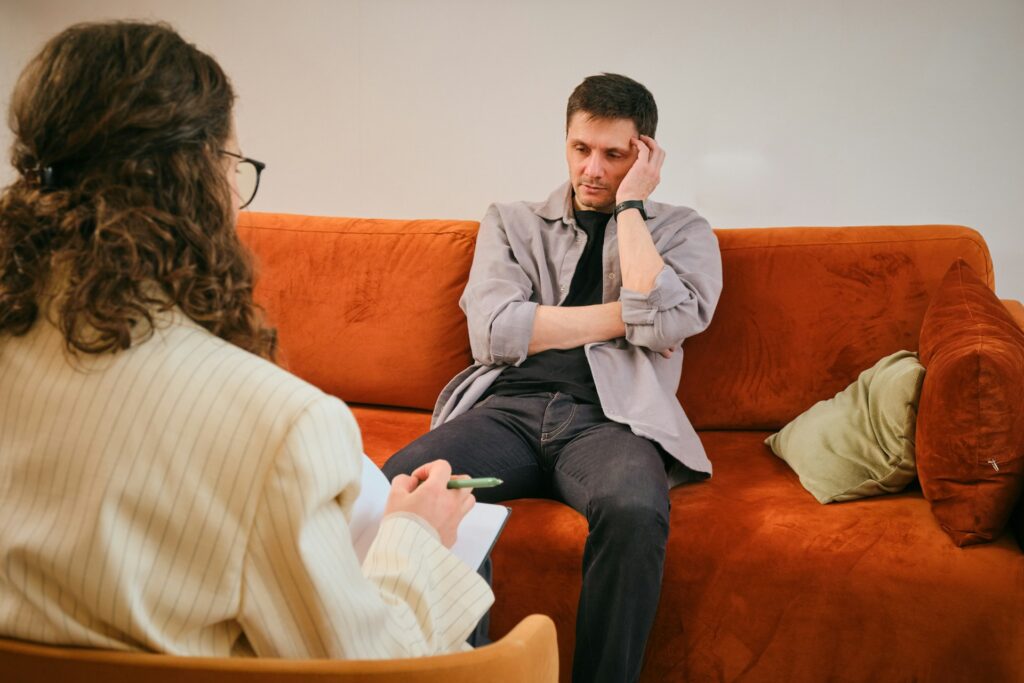Therapy can be life-changing, but it’s also a relationship.

Like any relationship, sometimes it runs its course. Just because a therapist helped you at one point doesn’t mean they’re still the right fit forever. Knowing when it’s time to move on can be tricky, especially when you don’t want to seem ungrateful or dramatic. But if something feels off, it’s worth paying attention. Here are some signs it might be time to say goodbye to your therapist and find someone new.
1. You leave every session feeling worse, not better.

Therapy isn’t always supposed to feel good in the moment—sometimes you have to work through uncomfortable stuff. That being said, if you consistently leave feeling drained, confused, or more anxious than when you arrived, it might be a red flag. A good therapist challenges you, yes, but they should also help you feel supported and grounded.
If it starts to feel like a weekly emotional ambush rather than a space for growth, it’s okay to question whether this particular setup is still serving you. The goal isn’t to feel happy every time—it’s to feel like you’re moving forward.
2. They talk more than they listen.

You shouldn’t feel like your therapist is dominating the conversation with personal anecdotes, opinions, or random advice. Therapy is your space, not a one-sided podcast where they’re the star of the show. Some guidance and reflection is helpful—but if you can’t get a word in, what’s the point?
Eventually, it can make you feel like your issues aren’t being properly heard or explored. If you start wondering whether they’re really listening, or if they’re just waiting for their next monologue, it might be time to reevaluate the dynamic.
3. You feel judged, misunderstood, or dismissed.

Therapists are human, and you won’t always feel totally in sync. But if you regularly feel misunderstood—or worse, judged—it’s a serious issue. Therapy only works when there’s trust and emotional safety, and that includes feeling free to be fully yourself, flaws and all. If you’re walking on eggshells, holding back your real thoughts, or leaving sessions feeling small, it’s not your job to power through. It might just mean it’s time to find someone who gets you a bit better.
4. You’ve stopped making any measurable progress.

Plateaus happen, especially when you’ve been in therapy for a while. However, if every session starts to feel like a repeat of the last—and you’re not learning, changing, or being challenged anymore—it might be a sign the work has stalled. That doesn’t always mean your therapist is doing something wrong. Sometimes, you’ve simply outgrown the approach or need fresh input. Therapy should evolve with you, not stay stuck in last year’s version of who you were.
5. They avoid tough conversations or topics.

If there’s a pattern of avoidance—whether it’s them dodging hard subjects, downplaying serious concerns, or brushing past things that clearly matter to you—it’s worth raising an eyebrow. Therapists should be willing to sit in discomfort with you, not redirect away from it.
There’s a difference between pacing therapy thoughtfully and just plain sidestepping the real stuff. If you feel like you’re constantly skating around the edges of what’s actually going on, you might need someone who can go deeper with you.
6. They don’t remember important details about you.

Everyone forgets things now and then, but if your therapist regularly seems confused about your story, forgets your major life events, or gets basic facts about your situation wrong, it can be unsettling. It can even make you feel invisible or unimportant. Consistency and attention to detail matter in therapy. If you’re starting to feel like just another client in the schedule rather than a person with a complex life they’re genuinely invested in, it might be time to move on.
7. The sessions feel too vague or directionless.

Some styles of therapy are more open-ended, and that’s fine if it’s working for you. But if your sessions start to feel like rambling chats with no structure, no follow-up, and no real focus, it can get frustrating quickly. You don’t need a checklist every week, but you do deserve a sense of purpose and direction. Therapy should help you untangle things, not just talk in circles until the clock runs out.
8. You feel like you’re performing instead of being honest.

If you find yourself saying what you think your therapist wants to hear, or editing your words to avoid their reaction, something’s off. Therapy should be the one place you don’t have to pretend. If it starts to feel like a performance, that’s a sign of disconnection. That kind of pressure slowly eats away at the whole point of therapy. You need space to be messy, confused, emotional, and raw—not polished, agreeable, or curated.
9. They make you feel dependent on them.

Therapy is supposed to empower you, not create emotional reliance. If your therapist subtly (or not-so-subtly) makes it seem like you can’t cope without them, or discourages you from ending therapy even when you’re ready, that’s a red flag. Healthy therapy gives you tools to navigate life, not a lifelong subscription. If it feels like they’re creating need rather than building resilience, it’s worth questioning why.
10. They cross professional boundaries.

This could be anything from oversharing their personal life to making inappropriate jokes or comments. It might be subtle or obvious, but either way—it’s not okay. A therapist’s role is to hold space for you, not blur the lines of the relationship. Boundaries create safety, and when they’re crossed, it can make therapy feel uncomfortable or even unsafe. If something feels off, trust your instincts, and don’t be afraid to seek support elsewhere.
11. You dread going to your sessions.

Everyone has days they’re not in the mood for therapy, especially if tough stuff is coming up. However, if you feel dread consistently, or find yourself making excuses to skip sessions, it might mean your gut is trying to tell you something. Therapy should feel like a place you can breathe, not something that adds more stress to your week. If the thought of going gives you a pit in your stomach, that’s worth paying attention to.
12. You just know it’s time.

Sometimes, there’s no big dramatic reason. No boundary crossed, no harsh moment. You’ve just changed, and it no longer feels like the right fit. That’s valid. Your needs evolve, and so should your support. If your gut is nudging you towards trying something different or saying goodbye, listen to that. Therapy is personal, and you get to choose what feels right for you, even if no one else fully understands why.


